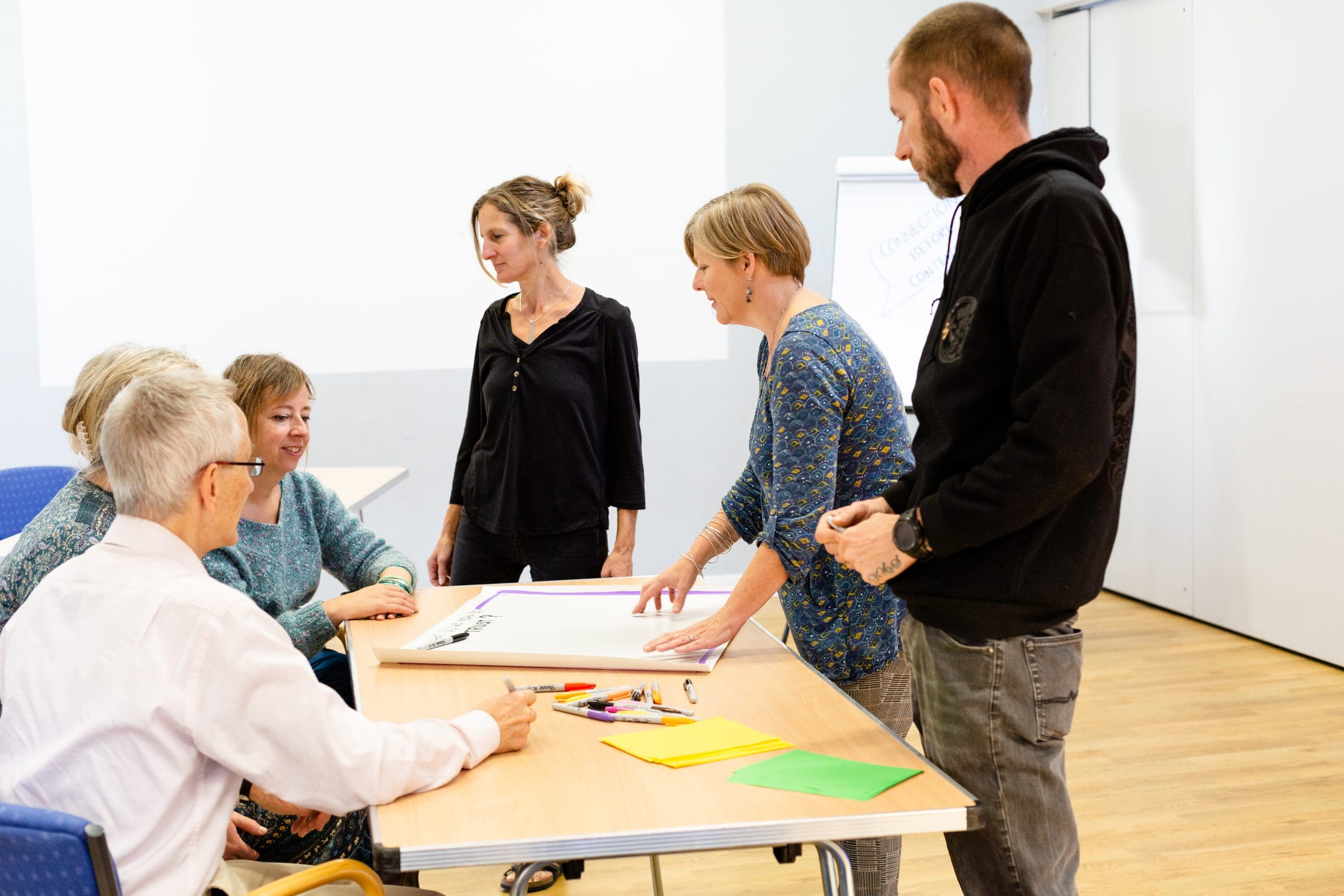Teams often find themselves pulled in multiple directions. Remote work, constantly shifting priorities, a wobbly strategy and poor communication on all fronts can leave even the most talented and experienced group of people feeling disconnected and fragmented.
What goes on inside the organisation, as well as the changing external landscape, can really have an impact on the way your teams work. This leads to poor productivity, disengagement, silo-ed working and a lack of flexibility which means many great opportunities will simply pass on by.
So how do you turn these fragmented, unhappy teams around and bring focus, particularly in times of uncertainty?
This is where turning to organisational development can be useful. In other words, taking a look at the bigger picture. Not only focusing on a single team, but thinking about how teams work together. Looking at how you function as an organisation to carve out your way in the world.
Organisational development focuses on the changes that need to happen in your company to make things work more smoothly and helps align people, processes and culture. Done well, it will take fragmented, disjointed teams and shaky strategies and bring everyone together, focused and clear, working towards shared goals.
Let’s start with understanding how we ended up with fragmented, unhappy teams in the first place. And no, you don’t need to blame remote working! This might be the result of a thousand tiny issues, which, when added together, can lead to a disjointed team.
- Poor communication. Unclear emails, meetings lacking direction, people talking at cross purposes and information getting lost. Sound familiar?
- Blurring of roles and responsibilities. When team members overstep the line into someone else’s work. Or when gaps appear because no-one knows who is accountable or responsible. Things don’t get done, no one says anything and no one notices until it’s too late.
It may be some much larger, deeper internal changes that are happening (intentionally or otherwise):
- When new strategies are implemented, teams restructured or workflows are interrupted without proper communication or support.
- A significant or continual change in the numbers of people working for your organisation, whether increasing or decreasing, affects the culture of the organisation and the sense of trust and belonging.
- A shift in the values and purpose of the organisation which means people start to lose their sense of direction.
Or as a result of something changing in the world around you.
- New legislation that dictates the way you need to do things.
- A new competitor on the block that seems brighter, shinier or more innovative than you.
- You need to shift and change what you do as the demands from customers change.
None of these things are a disaster – they can happen at any time to any team or organisation. But when they are ignored, they lead to frustration and competition rather than collaboration and fragmentation of effort with poor results.
So how do Organisational Development interventions help build stronger teams?
The first point to remember about good OD is that there isn’t one size fits all. Good OD is tailored and intentional and addresses those issues which led to the fragmentation of a team or organisation.
Good Organisational Development support will:
Help you to understand what is working and what is not working within your organisation, across your teams and within them.
Create a plan of action which will determine who needs to be involved at what stage of any intervention, and what this might look like. This is not a “done to” approach, but one where the right people are engaged and consulted on different things to create long lasting and positive change.
Enable greater resilience, clear direction, stronger relationships within and outside of teams and higher engagement overall. All this leads to a flexible, agile and focused groups working towards a shared purpose and clear goals.
Common areas of focus may be:
- Clarifying purpose and goals. Helping everyone knows what they are focusing on, why it matters and how they plan to get there. This may involve defining the mission, vision and goals in a way that works for everyone.
- Improving communication and collaboration by working on improving meetings practices, structuring communication, clarifying roles and agreeing ways of doing things. This allows good communication and collaboration to become the natural way of working.
- Strengthening and building trust by building stronger connections between people, encouraging a culture of honesty and sharing and understanding what people need to feel safe doing this. In this way, OD helps teams perform better by giving them the trust and psychological safety needed to take risks, speak up and learn from mistakes.
- Aligning processes by streamlining workflows, mapping processes and implementing systems which support, rather than hinder, the work of the team. When a team can focus on working towards their goals, rather than overcoming another process hurdle, they actually enjoy working together!
Organisational Development is a journey, so where do you start?
It all starts by helping you to analyse what is going on. You discover what is working and what is not working across the people, strategy, structure and processes within your organisation.
Take time to understand the gaps that exist: are there unclear (or non-existent) goals? Is communication getting worse?
Once you know where the issues are, you can start to take steps to make improvements.
Doing this yourself makes it very easy to get stuck in one area.
You might think that communication is the biggest problem and therefore put your focus there. But if the poor communication comes from a lack of clear goals, it won’t matter how much work you do on communication until the goals are clear.
It is also not easy to be objective about the system that needs to change, when you are part of that system.
That’s why OD really is best when you invite an Organisational Development Facilitator in. They have the ability to look in from the outside. They will identify the source of issues, and select the right strategies, tools and actions to bring about the change that is needed.
The key is to do the work to mend the issues, however large or small rather than apply a sticking plaster to the most obvious symptom.
Get in touch to see how we use Organisational Development facilitation to help you build stronger, more intentional teams.



